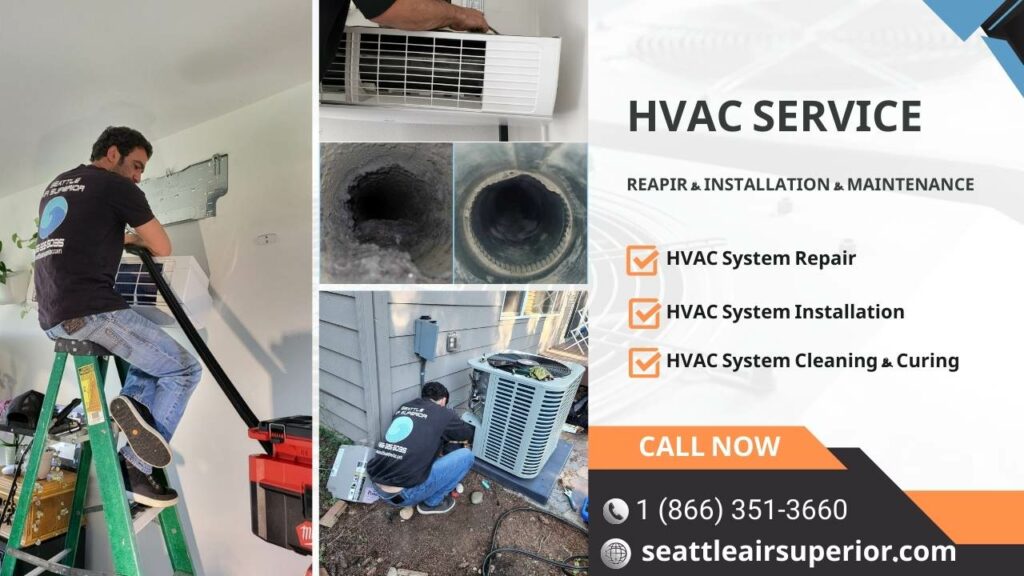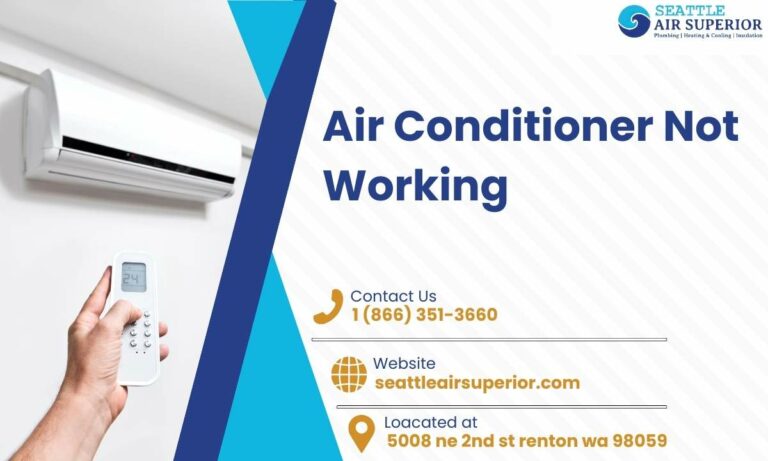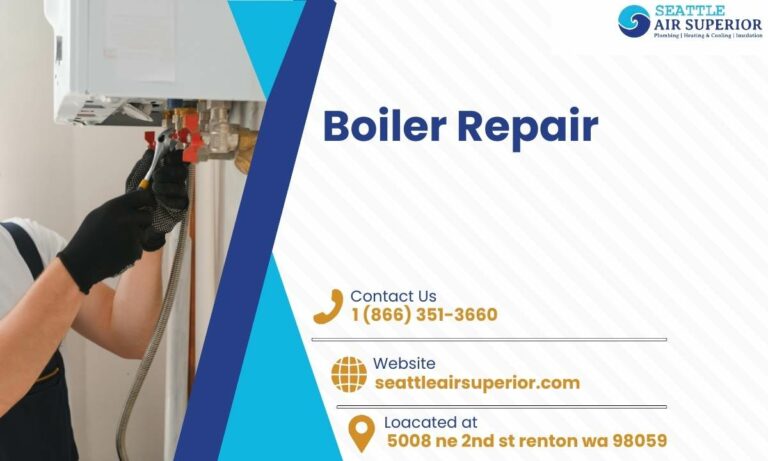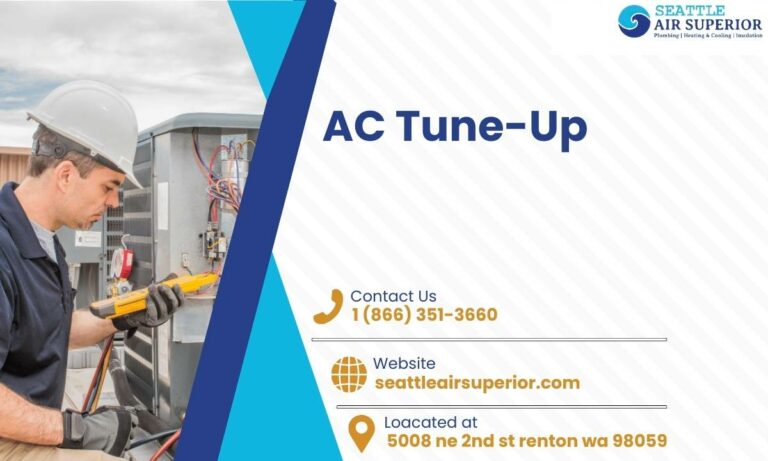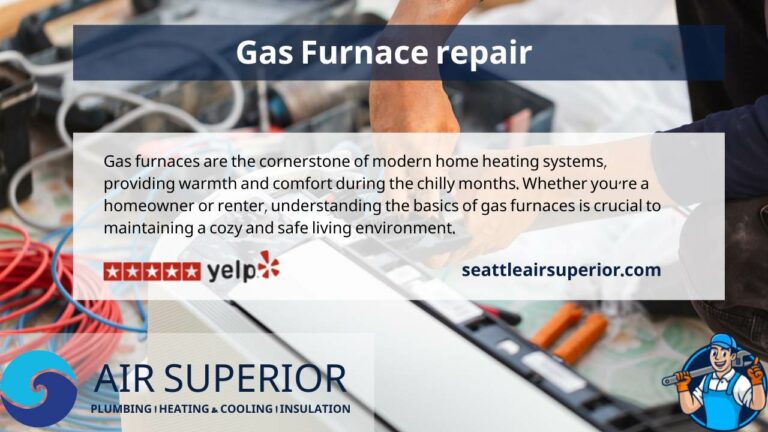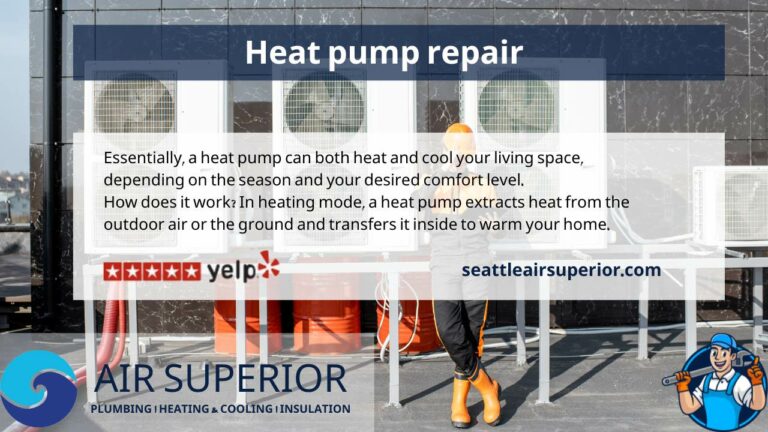Factors Affecting the Cost of HVAC Installation
Efficient heating, ventilation, and air conditioning (HVAC) systems are Needed for maintaining a comfortable indoor environment. When considering HVAC installation, it’s essential to be aware of the various factors that can impact the overall cost of the project.
These factors encompass a wide range of elements, from the type of HVAC system chosen to the size of the property and the complexity of the installation process. By understanding these factors, homeowners and property managers can make informed decisions that suit their budget and comfort needs.
Understanding the Different HVAC Systems
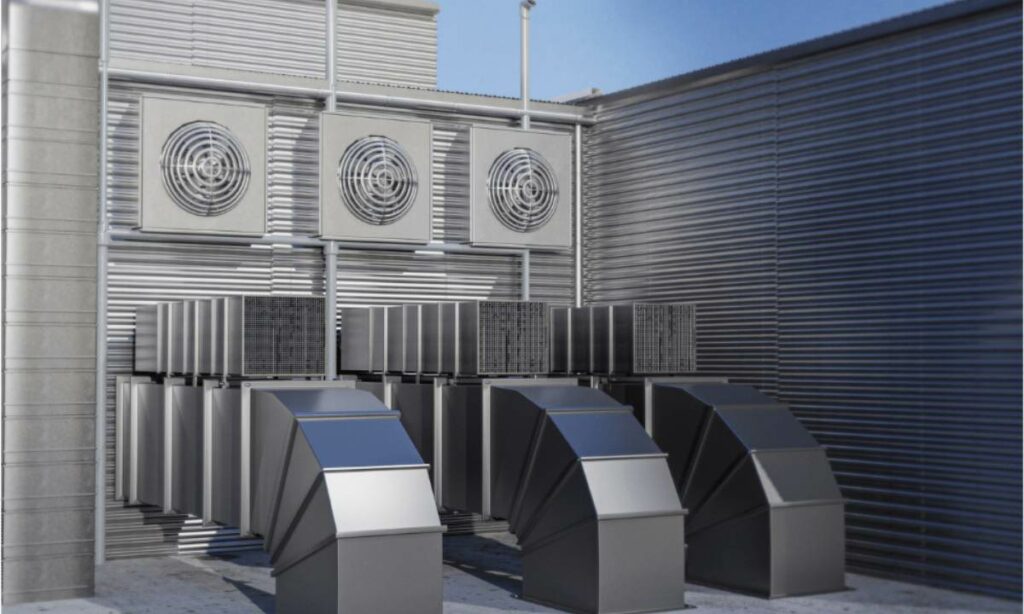
Before delving into the cost breakdown of HVAC installation, it’s crucial to have a basic understanding of the different HVAC systems available. HVAC systems can be categorized into several types, each designed to suit specific needs and building configurations.
- Split air conditioning systems – This is the most prevalent kind, comprising of both indoor and outdoor components. The indoor component holds the evaporator coil, while the outdoor component accommodates the compressor and condenser coil. Split air conditioning systems are adaptable and appropriate for a diverse array of uses.
- Ductless Mini-Splits – These systems are akin to split systems but devoid of the need for ductwork. They comprise an outdoor compressor/condenser. Ductless systems are ideal for room-specific heating and cooling.
- Packaged Units – In these systems, all components are housed in a single outdoor unit, making them space-efficient. They are commonly used in commercial buildings or residences without a basement or attic.
- Geothermal Systems – These systems utilize the stable temperature of the ground to provide heating and cooling.
- Hybrid Systems – Combining a traditional furnace with an electric heat pump, hybrid systems automatically switch between gas and electric heating to optimize efficiency.
Cost Breakdown: Equipment and Labor
When considering Hvac installation cost, it’s essential to break down the expenses into two primary categories – equipment and labor. The equipment costs encompass the price of the HVAC system itself, including all necessary components such as the compressor, condenser, evaporator coil, air handler, and thermostat.
Labor costs make up a significant portion of the total hvac installation cost per square foot. HVAC technicians are responsible for installing the equipment, connecting the various components, setting up ductwork if necessary, and ensuring proper system functionality.
Labor costs can vary depending on the complexity of the installation, the location of the property, and the time required to complete the project.
Assess the Size and Capacity of HVAC Systems
Selecting an HVAC system of the appropriate size and capacity for your property is crucial for both efficiency and comfort. An undersized system will struggle to cool or heat the space adequately, leading to increased energy consumption and potential wear and tear.
On the other hand, an oversized system may cycle on and off frequently, resulting in energy wastage and inconsistent comfort levels.
HVAC professionals perform load calculations to determine the correct size and capacity of the system needed for your property. Factors such as the square footage of the space, insulation levels, number of windows, and local climate are taken into account.
Calculation of the Cost of Installing Ducts
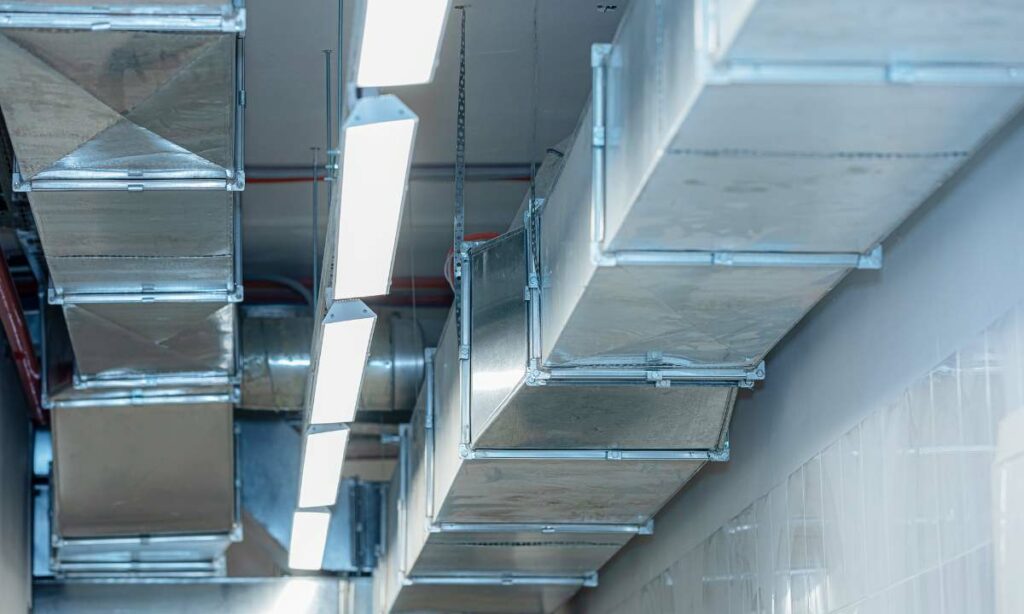
if your HVAC system requires ductwork, it’s important to factor in the cost of installing ducts when considering Hvac installation cost.
Ductwork is essential for distributing conditioned air throughout the building. The cost of duct installation can vary based on factors such as the complexity of the duct layout, the size of the property, and the type of duct material used.
Duct installation involves designing the duct layout, fabricating the ducts, and securing them in place. The cost includes materials such as ducts, connectors, insulation, and sealing materials. Properly installed ducts contribute to efficient airflow, which is essential for maintaining consistent temperatures and minimizing energy waste.
Additional Costs: Insulation and Ventilation
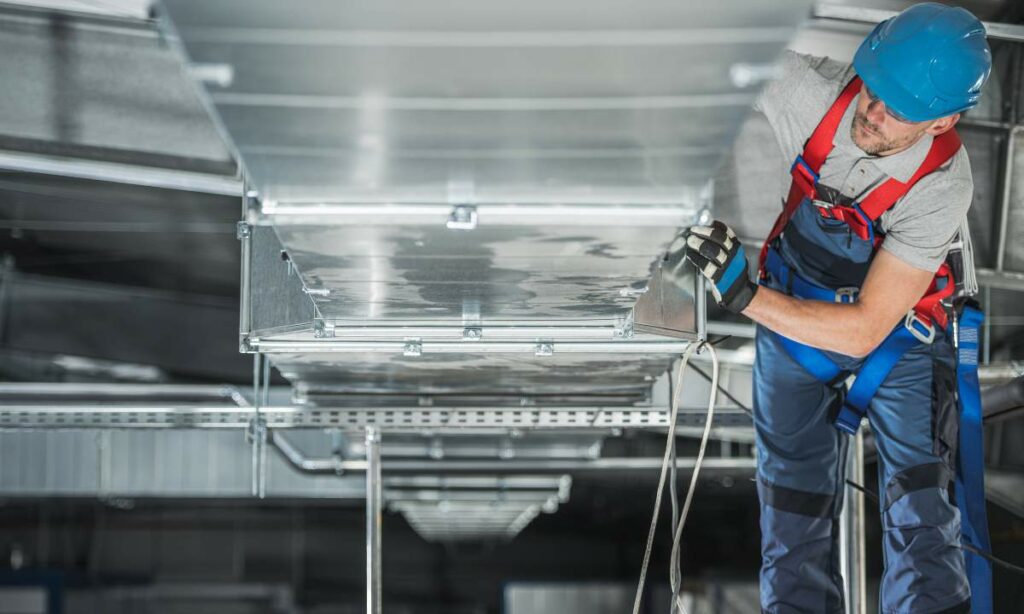
When talking about hvac installation cost estimator, it’s important not to overlook additional expenses related to insulation and ventilation. Proper insulation plays a critical role in maintaining the efficiency of your HVAC system. Insulated spaces retain conditioned air better, reducing the workload on the HVAC system and ultimately leading to energy savings.
Ventilation is another aspect that can impact Hvac installation cost. Adequate ventilation is essential for maintaining indoor air quality and preventing moisture buildup, which can lead to mold and other issues. While ventilation systems might not be as prominent as heating and cooling components, they are integral to the overall comfort and health of your indoor environment.
Hiring Professional Contractors vs. DIY Installation
The question of whether to hire professional HVAC contractors or attempt a DIY installation is a major when it comes to Hvac installation cost.
While it might be tempting to consider a DIY approach to save money, HVAC systems are complex and require specialized knowledge for proper installation. Hiring professional contractors offers several advantages.
| Hiring Professional Contractors | DIY Installation |
|
|
The Importance of Proper HVAC Installation for Long-Term Savings
While discussing Hvac installation cost, it’s important to emphasize the long-term savings that result from a proper installation.
- Enhanced Efficiency and Reduced Energy Consumption. One paramount aspect is the operational efficiency and energy consumption of a system installed correctly and adequately sized. This precision allows the system to function with heightened efficiency, utilizing lesser energy to uphold desired temperatures. Consequently, this heightened efficiency culminates in diminished energy bills throughout the years, potentially counterbalancing the initial outlay of installation expenses.
- Mitigated Breakdowns and Repairs Furthermore, a meticulously installed HVAC system demonstrates heightened resilience against breakdowns and malfunctions. By minimizing vulnerabilities, it curtails the necessity for expensive repairs and mitigates the associated financial burden.
- Optimization of System Operation and Indoor Comfort A proper installation goes beyond economic advantages, extending into the realm of optimal system operation. By ensuring the system functions at its peak, it consistently maintains indoor comfort levels. This augmentation not only elevates one’s quality of life but also carries the potential to positively influence the valuation of the property.
Financing Options for HVAC Installation Projects
The upfront Hvac installation cost can sometimes be a substantial financial commitment. To ease the financial strain, there are various financing options available for HVAC installation projects. These options allow homeowners and property managers to spread out the cost over time, making the investment more manageable.
Common financing routes include personal loans, home equity lines of credit (HELOCs), and financing plans offered by HVAC manufacturers or installation companies.
Personal loans from banks or credit unions provide a lump sum upfront, which you can use to cover the Hvac installation cost. The loan is then paid back over a fixed period with interest.
HELOCs, on the other hand, allow homeowners to borrow against the equity they’ve built in their homes. This can be a cost-effective way to fund larger projects like HVAC installations, with potentially lower interest rates than personal loans.
Many HVAC manufacturers and installation companies offer financing plans specifically tailored to their products and services.
These plans often come with competitive interest rates and flexible repayment terms. Before committing to any financing option, it’s important to carefully review the terms, interest rates, and any potential fees to ensure you’re selecting the best option for your budget and financial situation.
Maintenance and Repair Costs for HVAC Systems
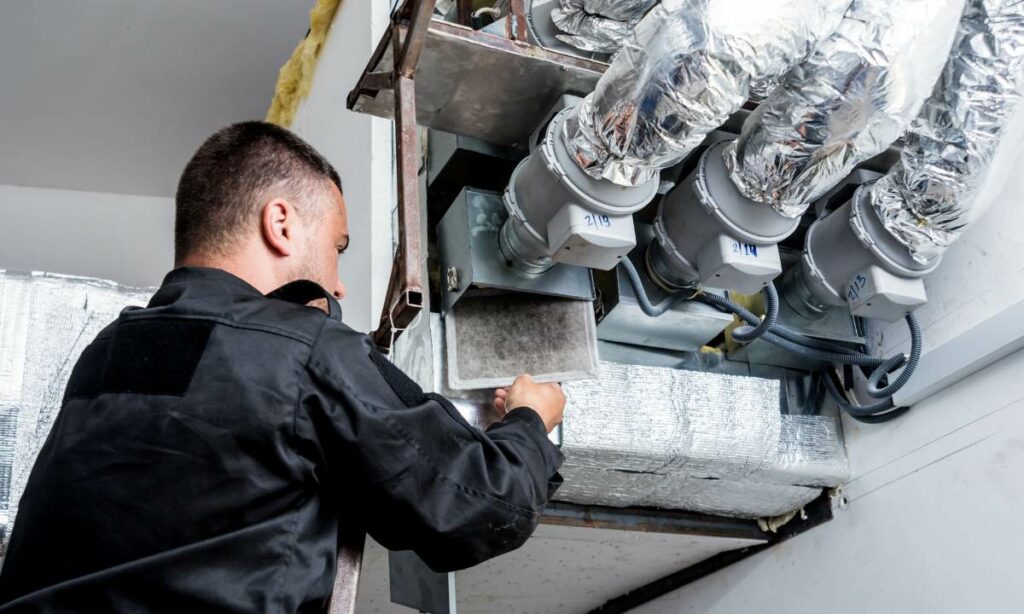
Beyond the initial Hvac installation cost, homeowners and property managers should also consider ongoing maintenance and potential repair expenses. Regular maintenance is essential to keep your HVAC system operating efficiently and prevent potential issues.
Maintenance tasks include cleaning or replacing filters, inspecting components, and ensuring proper airflow. While routine maintenance might incur a modest cost, it’s a crucial investment in prolonging the lifespan of your system and maintaining its performance.
However, even with proper maintenance, HVAC systems can experience wear and tear over time. Parts may need replacement, and components might require repair. It’s wise to allocate a portion of your budget for unforeseen repair costs.
To mitigate these expenses, some homeowners opt for extended warranties or service agreements provided by HVAC manufacturers or installation companies. These agreements often cover parts and labor for repairs, giving you peace of mind and predictable costs in case of system malfunctions.
How SeattleAirSuperior Can Help You With Air Conditioner Repairs
In the event that your HVAC system requires repairs, companies like SeattleAirSuperior specialize in diagnosing and resolving HVAC issues.
Whether it’s a malfunctioning air conditioner or a heating system that’s not performing optimally, professional HVAC technicians have the expertise to identify the problem and implement effective solutions. Attempting DIY repairs can worsen the issue and result in higher repair costs.
SeattleAirSuperior offers skilled technicians who are trained to handle a wide range of HVAC problems. They provide prompt and reliable service, ensuring your HVAC system is up and running efficiently in no time.
Whether it’s a minor adjustment or a major repair, enlisting the help of professionals like SeattleAirSuperior can save you from unnecessary stress, additional expenses, and prolonged discomfort due to HVAC system issues.
Understanding Warranty and Insurance Coverage for HVAC Installation
When evaluating the Hvac installation cost, it’s important to consider the warranty and insurance coverage associated with the system. A reliable warranty provides a safety net in case of unexpected equipment failures or malfunctions.
Additionally, inquire about insurance coverage for the HVAC installation project. Reputable HVAC contractors typically carry liability insurance and worker’s compensation insurance.
Liability insurance protects you from financial responsibility in case of accidental damage to your property during installation, while worker’s compensation insurance covers any injuries that HVAC technicians may sustain while working on your property.
These factors contribute to the overall peace of mind, knowing that your investment is protected and any unforeseen issues can be addressed without adding financial burdens.

